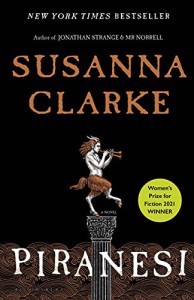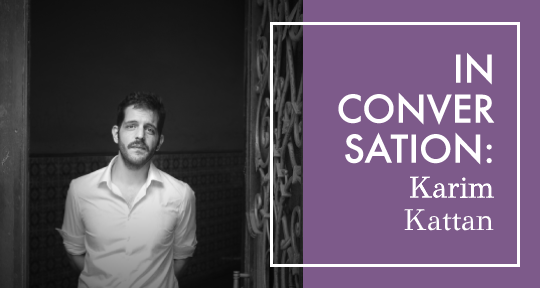What is absence—this deeply felt substance that is not made of matter, but lack? In texts across time, writers have given form to vanishing and its metaphorical power, studying its mystery and its abjection, its myth and its experience. In the following essay, MK Harb discusses three cases of disappearance in short stories by Jorge Luis Borges, Alice Munro, and Danial Haghighi, and how the three authors use the duality of presence and absence to explore the psychology of those who go and those who stay, as well as experiences of class, gender, sexuality, and colonialism.
In a curious poem by the name of “Elegy with a Thimbleful of Water in the Cage,” the late Larry Levis created, in words blown with the precision of a glassmaker, a philosophical text on life and desire. Beginning with, “It’s a list of what I cannot touch,” Levis narrates the myth of the Cumaean Sibyl, an ancient Greek priestess who, in her quest to ask the Gods for eternal life, forgot to ask for eternal youth. What ensues is a lesson in cruelty, for as time expands and centuries go by, she shrinks and dwarfs until she becomes as tiny as a thumb, upon which she is placed in a jar to “suffocate without being able to die.” As the years churn on, Sibyl eventually finds herself in a birdcage, placed there by an Athenian shop owner for her protection. She emits small bird-like whispers to Athenian boys, who often rattle her cage to ask: What do you want, Sibyl? To this she responds: death. Her voice goes mute as she witnesses an ever-changing Athens through to the Second World War, all the while continuing to be alive, shriveling and aging, yet somehow disappearing from living. Using Sibyl, Levis creates a melancholic irony in which a desire for a prolonged life leads to disappearance.
When I think of disappearance, I think of Elena Ferrante’s My Brilliant Friend and the soul-crushing friendship between Lila and Elena, two intellectual women haunted by the other’s abilities, acting out their insecurities through never-ending disappearances and reappearances within each other’s lives. I think of Hiroshi Teshigahara’s 1960s film Woman in The Dunes, where a depressive Japanese scientist spends the night with a seductive village woman in a remote sand dune. After their affair, the staircase leading outwards—a symbol of return to urbanity—vanishes, and the most Sisyphean struggle ensues. In such works, disappearance is an allegory for life and time, lost and spent.
Disappearance has long been a hallmark of serious prose, a thematic thread throughout literature of all variances. In three short stories set in Canada, India, and Iran, this allegorical device operates at the narratives’ center. The first is Jorge Luis Borges’ “Man on the Threshold,” which follows the tradition of narration through memory, telling us of the writer’s childhood friend, Bioy Casares, who brings with him from London to Buenos Aires a strange dagger. This object triggers another story from a friend sitting with them, Christopher Dewey, who served in the British colonies of India. READ MORE…








Radical Reading: Sara Salem Interviewed by MK Harb
I’ve increasingly thought more about what generous, kind, and vulnerable reading might look like instead.
At the height of the pandemic, I—like so many of us—looked for new sources of intrigue and intellectual pleasure. This manifested in finding Sara Salem’s research and reading practice, Radical Reading, which was a discovery of sheer joy; Salem views books and authors as companions, each with their own offerings of certain wisdom or radical thought. When she shares these authors, she carries a genuine enthusiasm that they might come with some revelation.
I interviewed Salem as she sat in her cozy apartment in London wrapping up a semester of teaching at the London School of Economics. We discussed our lockdown anxieties and our experiences with gloomy weather until we arrived at the perennial topic: the art of reading. The interview continued through a series of emails and transformed into a beautiful constellation of authors, novelists, and activists. In what follows, Salem walks us through the many acts of reading—from discussing Angela Davis in Egypt to radicalizing publications in her own work, in addition to recommending her own selections of radical literature from the Arab world.
MK Harb (MKH): Reading is political, pleasurable, and daring. Inevitably, reading is engaged in meaning-making. How did you arrive at Radical Reading as a practice?
Sara Salem (SS): Some of my most vivid childhood memories are of spending long afternoons at home reading novels, and when I think back to those novels, I find it striking that so many of them were English literature classics. I especially remember spending so much time reading about the English countryside—to the extent that today, when I am there, or passing it on a train, I get the uncanny feeling that it’s a place I know intimately. Later, when I read Edward Said’s writing on Jane Austen and English literature more broadly—its elision, erasure, and at times open support of empire—it struck me that we can often read in ways that are completely disconnected from the lives we live. This tension was what first opened up entire new areas of reading that completely changed my life, among which was the history of empire across Africa; at the time I was living in Zambia, where I grew up, and often visited Egypt. Critical history books were probably my first introduction to what you call the practice of radical reading, of unsettling everything you know and have been taught in ways that begin to build an entirely different world.
I like that you say reading is engaged in meaning-making, because it has always been the primary way in which I try to make sense of something. Even more recently, as I’ve struggled with anxiety, reading above all became my way of grappling with what I was experiencing: what was the history of anxiety, how have different people understood it, and how have people lived with it? I realise, of course, that not everything can be learned from a book, but so far, I’ve found that what reading does provide is a window into the lives of people who might be experiencing something you are, making you feel less alone.
MKH: How do you reconcile reading for pleasure versus reading for academic and political insights? Do they intersect? Being idle has its own spatial practice of radicality at times, and I’m curious on how you navigate those constellations.
SS: This question really made me think! In my own life, I have always made the distinction of fiction as pleasure and non-fiction as academic/work-related. So, if I need to relax, or want to take some time off, I will instinctively reach for fiction, and if I want to start a new project, I think of which academic texts would be helpful. However, this began to change about five or six years ago, when I began to think more carefully about how fiction speaks to academic writing and research, as well as how non-fiction—unrelated to my own work—can be a great source of pleasure and relaxation. This has meant that they have begun to intersect much more, and it has enriched both my academic work and my leisure time. READ MORE…
Contributor:- MK Harb
; Language: - Arabic
; Places: - Egypt
, - Zambia
; Writers: - Ahdaf Soueif
, - Arwa Salih
, - Huda Tayob
, - Mahmoud Darwish
, - Sonallah Ibrahim
, - Thandi Loewenson
, - Waguih Ghali
; Tags: - intersectional feminism
, - migration
, - Race
, - radicalism
, - Reading
, - sexuality
, - social commentary